BASE-UK Member Visit to Rothamsted Research Center, Harpenden on 9th May 2019
Posted May, 20th, 2019
We were very pleased to receive an invitation from Dr Jackie Stroud for BASE-UK members to spend an afternoon at Rothamsted on May 9th as a follow up from her talk at our AGM Conference in February 2019. Jackie will be known by many for her 30 Minute Worm Survey work which has been supported well by our members. Because of her work the importance of worms in helping with all aspects of soil improvement has been much more widely appreciated to the extent that they are the “A Listers” of soil health. Our visit started with lunch, then we moved on to a meeting room where we had four short but fascinating talks by colleagues of Jackie’s, from various departments.
- Kelly Jowett – Carabid Beetles (pictured right).
- Richard Hull – Blackgrass and Glyphosate.
- Professor Lin Field – Neonics and Me.
- Dr Cathy Thomas – Soil Chemistry and Dry Spectroscopic testing techniques.
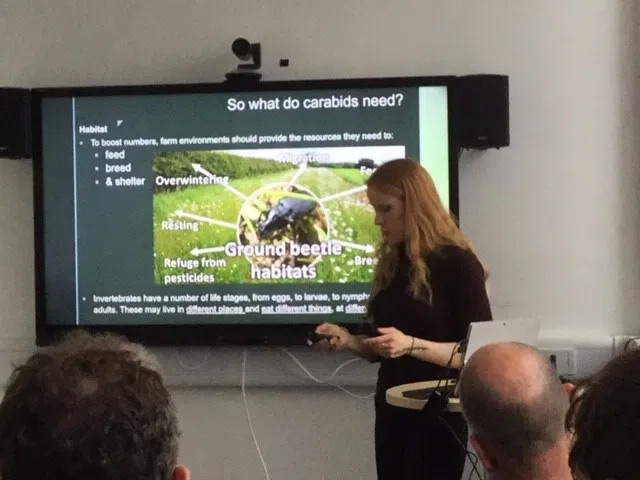
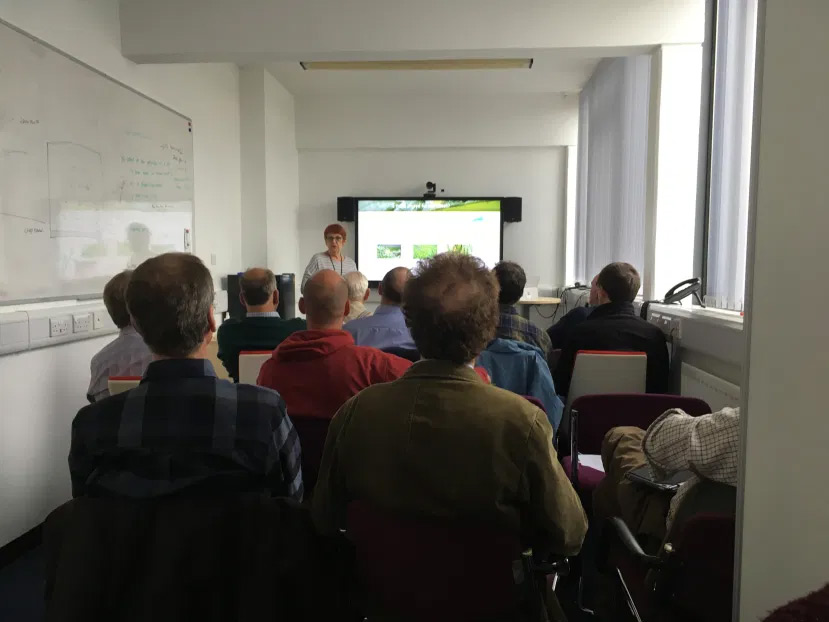
We were educated, enlightened and in the last presentation I really think we saw an exciting insight into the future of soil testing both here and globally. Next, we moved onto the Insect Lab where Chris Shortall and his colleagues painstakingly identify insects and moths that arrive in the lab from traps throughout the UK. He takes the ability to compare trends in data of over five or more decades as the norm. This department will in future be working with at least one BASE member who will be hosting a lighttrap on his farm. https://insectsurvey.com/
We were very pleased to receive an invitation from Dr Jackie Stroud for BASE-UK members to spend an afternoon at Rothamsted on May 9th as a follow up from her talk at our AGM Conference in February 2019. Jackie will be known by many for her 30 Minute Worm Survey work which has been supported well by our members. Because of her work the importance of worms in helping with all aspects of soil improvement has been much more widely appreciated to the extent that they are the “A Listers” of soil health. Our visit started with lunch, then we moved on to a meeting room where we had four short but fascinating talks by colleagues of Jackie’s, from various departments.
Rothamsted’s Archive.
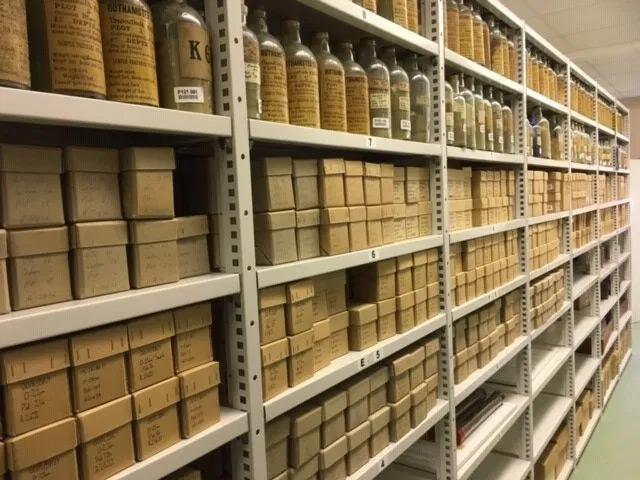
Entering the Rothamsted Archive is like travelling back in time. What foresight John Bennet Lawes had back in the 1840’s when he started his research work and started saving samples of seeds, plant tissue and soil. With the advent of new analytical techniques, we can now go back and study the effect of global events (Chernobyl), climate change (clean air) and advent of more modern production techniques in these samples. Is modern high yielding wheat grain as nutritious as it was before the war? Let’s check that, because we can.
Storage during the War years was limited to whatever containers were on hand at the time – but the archive continued to be kept up to date.
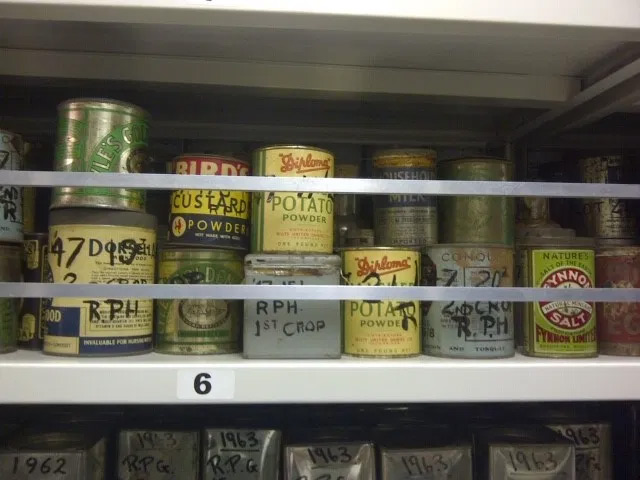
Broadbalk Field
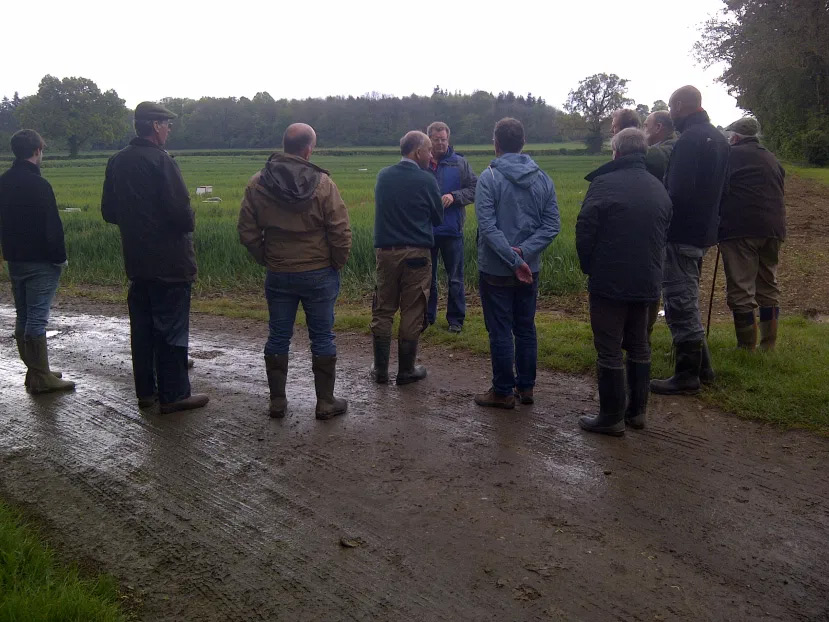
Off in our cars on the short drive to the famous Broadbalk Field. This is always a highlight of a Rothamsted visit. Experiments started on this field of continuous wheat in 1843 and its trial plots will have received anything from a copious dressing of FYM incorporated every year to zero nutritional inputs over that time.
Measurements taken on the plots range from measurements of SOM to gaseous emissions and obviously crop yield. Thanks to Dr Andy Macdonald for talking us through this trial.
Through the hedge Dr Ian Shield (pictured far right) introduced the new Long Term Rotations Experiment.
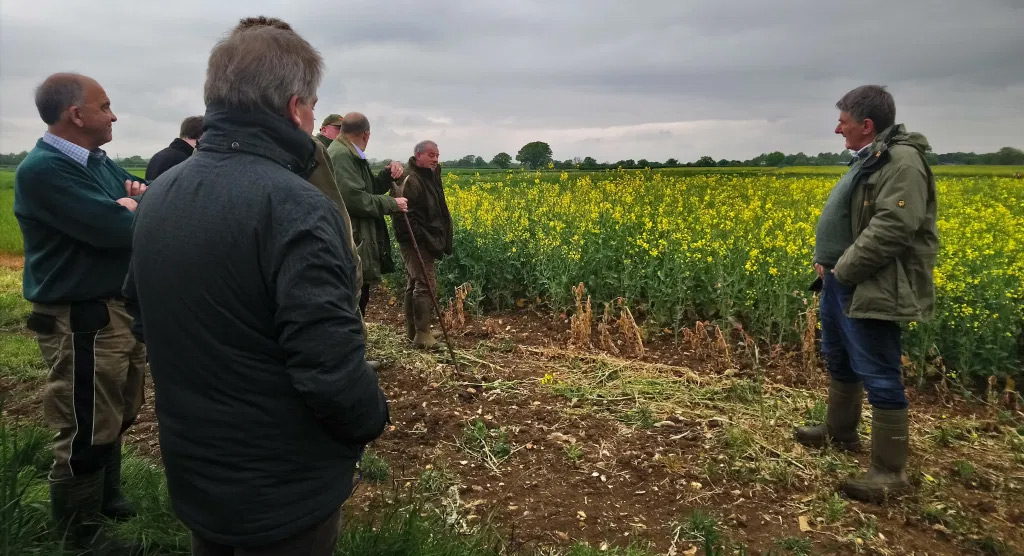
This was of particular interest to us as Conservative Ag farmers, but I can’t help but think it’s playing catch-up with what many of us are already doing on farm. Shame this wasn’t started ten years ago as the replicated trials will no doubt be able to identify whole rotation benefits of the different short, medium or longer diverse rotations which include till and no till, + & – cover crops.
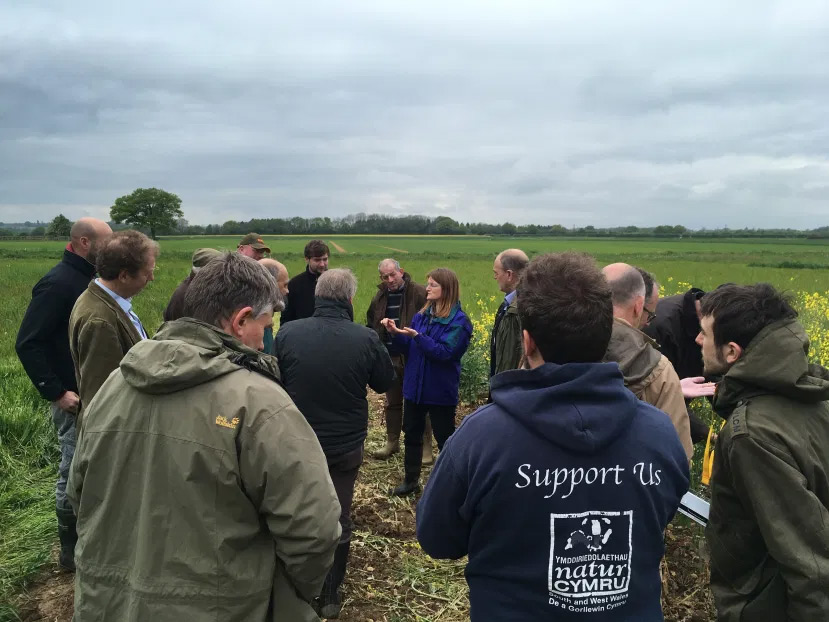
Dr Sam Cook (blue coat in centre) in the Long Term Rotations Experiment field.
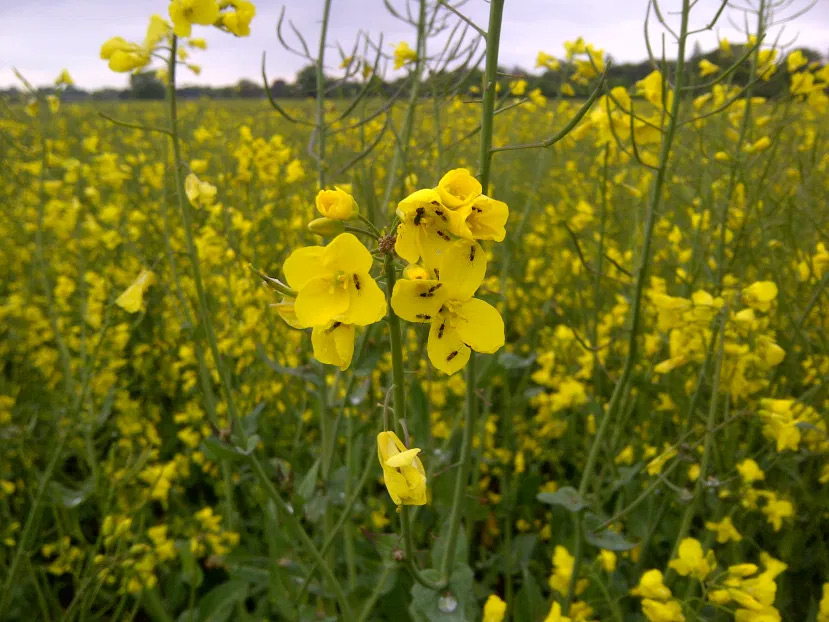
Finally, Dr Sam Cook a Behavioural Ecologist showed us first-hand that an Oil Seed Rape field really is an insect factory. We saw parasitic wasps helping control Pollen Beetle and discussed the challenges of managing Flea Beetle. Sam is keen to work with Base members and has two surveys which I would encourage members to take part in. One is a survey on oilseed rape growers opinions on cabbage stem flea beetle management past, present & future https://readingagriculture.eu.qualtrics.com/jfe/form/SV_bO8eNOp7C0a4Yu1
The other is a telephone survey for farmers on ‘sustainable farming practices’ in Europe as part of the EU-funded project EcoStack.
We have a great opportunity to help Sam and her colleagues from Rothamsted with their work by participating at farm level and we will be pursuing this on your behalf.
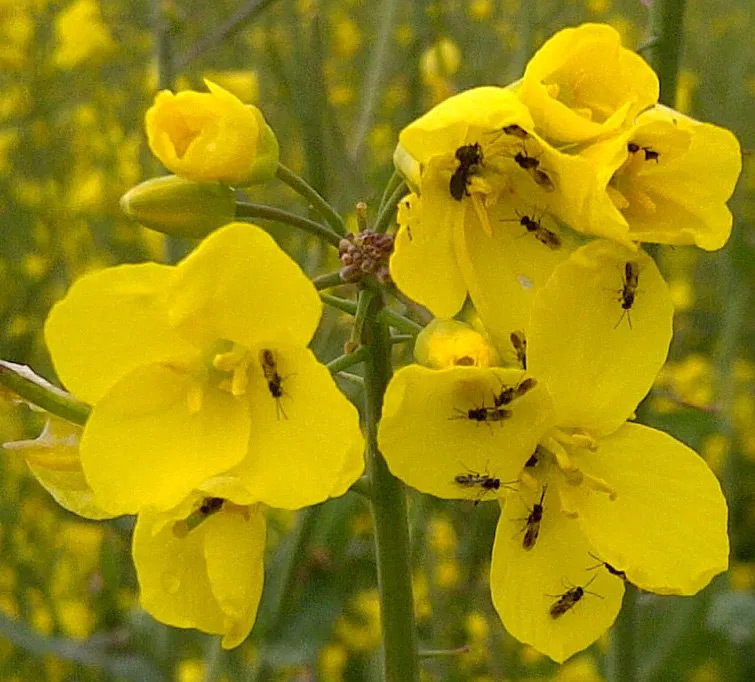
Close-up of Parasitic Wasps which help control Pollen Beetles.
I would like to thank Jackie and her colleagues for their generosity with their time and sharing the results of some of their interesting research work. We only scratched the surface of a range of topics that were specifically relevant to Conservation Agriculture and clearly alongside the wider agricultural research the station does sets it out as facility we should all be rightly proud of. Continued funding is essential and should be supported at all levels whenever possible.
David White.
BASE-UK looks forward to working with Rothamsted Research Centre and if any members are interested in getting involved with the surveys or research mentioned in this article please contact Rebecca on rebecca@base-uk.co.uk for more information.
Recent Posts
BASE-UK - ANNUAL CONFERENCE 2024 - SIX INCHES OF SOIL PREVIEW
BASE-UK - ANNUAL CONFERENCE 2024 DAY 2 - HANNAH FRASER
BASE-UK - ANNUAL CONFERENCE 2024 DAY 2 - RICHARD JENNER
BASE-UK - ANNUAL CONFERENCE 2024 DAY 2 - DAVID GOODWIN
BASE-UK - ANNUAL CONFERENCE - DAY 2 - JAY FUHRER PART 2
BASE-UK - ANNUAL CONFERENCE DAY 2 - JAY FUHRER PART 1
BASE-UK - ANNUAL CONFERENCE DAY 1 - SPEAKER PANEL
BASE-UK - ANNUAL CONFERENCE DAY 1 - BEN ADAMS
BASE-UK - ANNUAL CONFERENCE DAY 1 - TOBY SIMPSON
BASE-UK - ANNUAL CONFERENCE DAY 1 - ALEX FRASER
